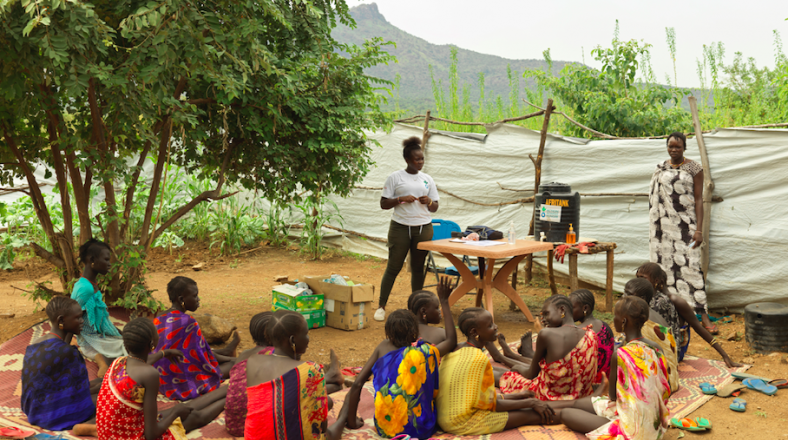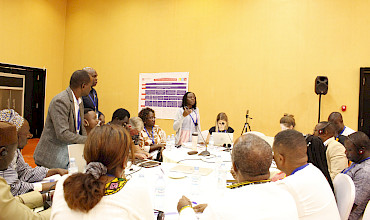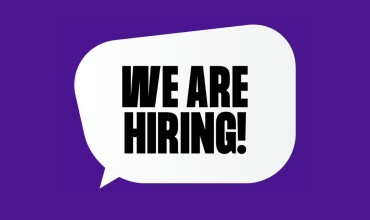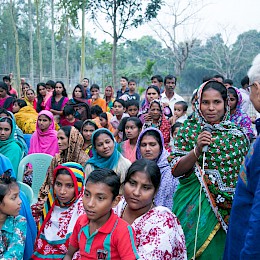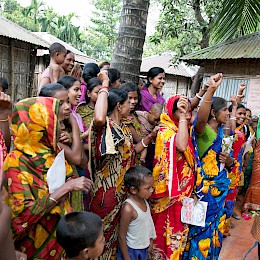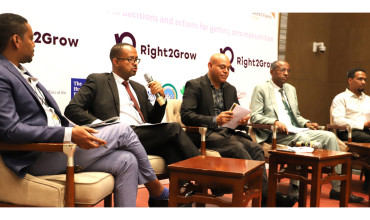
Right2Grow started in January 2021 as a new partnership with over fourty global and national partners in 10 countries. During the preparations in 2020 the world was hit by COVID-19. This challenged us to build the partnership in ways we never did before: more virtual meetings and hardly any travels. How do we cultivate a learning environment in a new partnership?
Learning requires trust
Jouwert van Geene, global partnership facilitator: "During the development of the partnership in early 2020 - so pre-COVID - we were lucky to start with design workshops in all programme countries. This laid a good foundation for the collaboration. From January 2021 onwards we have made a lot of effort to bring together partners online for introduction workshops and we have set up our global internal sharing platform with over 200 participants across all countries. But apart from building up this digital infrastructure, the human connections are much more important, so we all can find each other and build trust that is required for sharing and learning."
Appreciate strengths and identify gaps
In the programme countries Right2Grow has organised a good number of workshops and trainings to get the partnership going and to start reflecting on progress. Silindile Shezi, global budget advocacy expert from CEGAA, travelled to Ethiopia to conduct a three day workshop on Budget Monitoring and Expenditure Tracking (BMET) with Right2Grow Partners. Shezi explains: "When you sit together and reflect for three days, you really start appreciating the strengths of all partners in the programme, while you can also jointly identify some gaps in the plans or in the implementation in relation to the unique context and situation in a country. For example, government budget monitoring and expenditure management highly depend on the availability of the public sector financial data. At the start of our programme we have to establish a clear agreement with regional and local government actors so they will collaborate in the budget monitoring and expenditure management processes with communities. After our reflections the partners appreciate these complexities and we can strengthen the programme implementation."
Let’s create a platform to share and improve the ways we work.
Learning leads to action
In Burkina Faso Right2Grow organised a two-day gender and inclusion workshop with local civil society partners. In the workshop particular emphasis was placed on the importance of involving women in decision-making bodies. This begins with respect for the gender quota policy adopted by the Government of Burkina Faso. Participants were invited to share information with each other on any awareness-raising and advocacy activities they will carry out. Because in the end it is all about the action that follows learning and sharing. Jude Ssebuliba of Food Rights Alliance Uganda, about learning in Right2Grow: "How many meetings have you attended that bring together CSOs to present their work and ways to move different advocacies forward? How many actions have you taken out of the meeting room? Let’s create a platform to share and improve the ways we work."
Learning is not a luxury
Right2Grow envisions that within the next five years capturing and sharing knowledge from communities and all partners will take place in a fluid, systematic and sustainable way. Stephanie Stern, global linking and learning expert of Right2Grow: "We often believe we can’t afford the time it takes to learn, but none of us can afford not to learn. Learning is no longer a luxury; it’s a necessity to improve our ways of working and ultimately our efficiency. We are developing a global learning strategy building on the learning agendas of all programme countries. Global level learning topics include, among others, community engagement and adaptive management." The global linking and learning Team of Right2Grow organised learning workshops at country level to jointly define with R2G partners the learning topics they will focus on in 2021. In Mali for example, global online presentations were combined with face-to-face brainstorms to prioritize learning topics, define a learning action plan and identify learning champions to support the process.
It is an exciting journey to learn with communities, partner organisations and other partnerships about common challenges or opportunities to create impact.
Back to overview